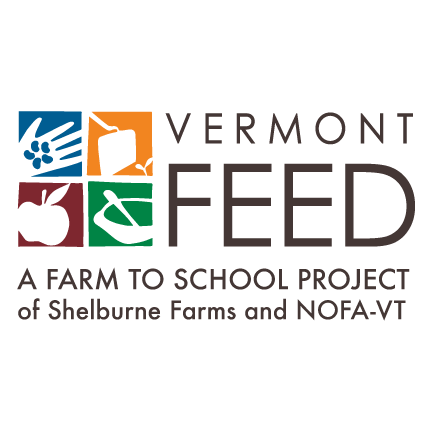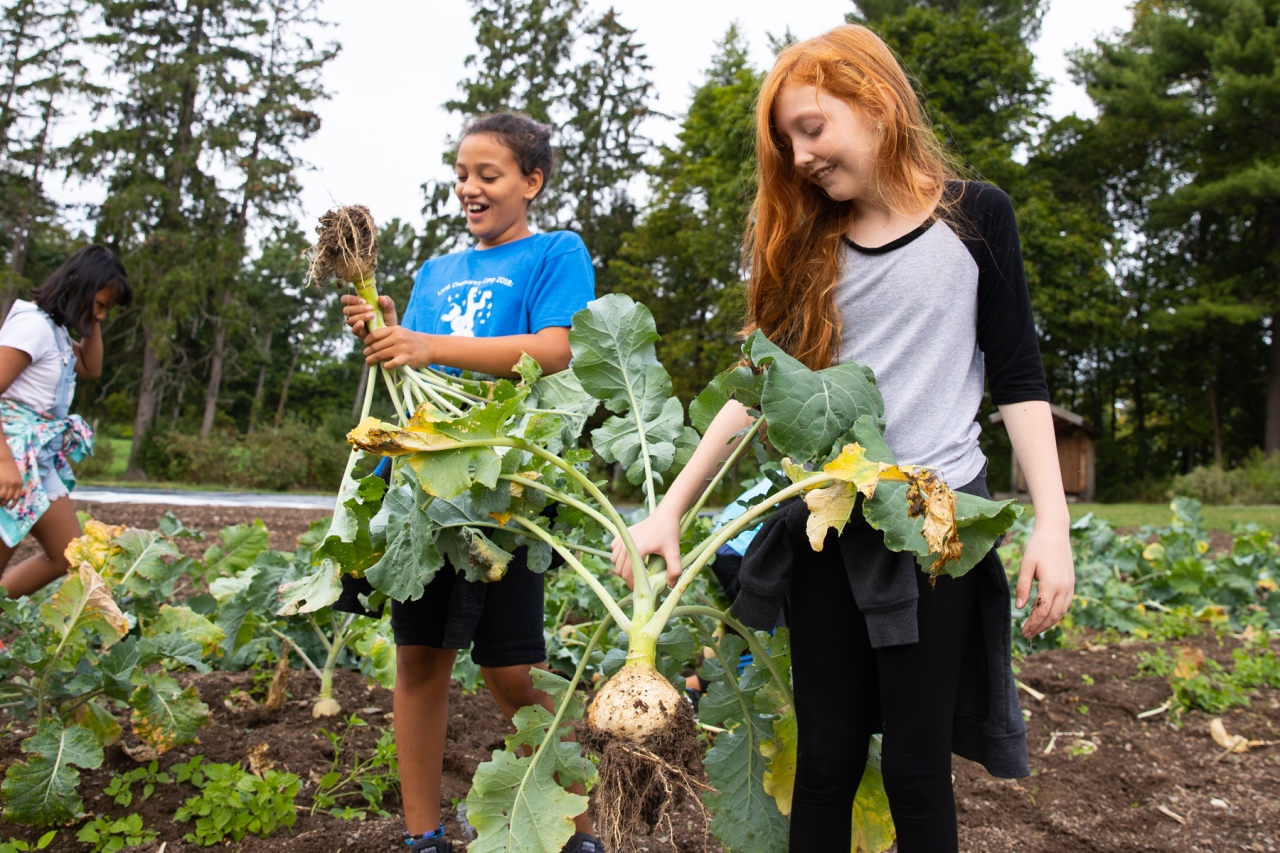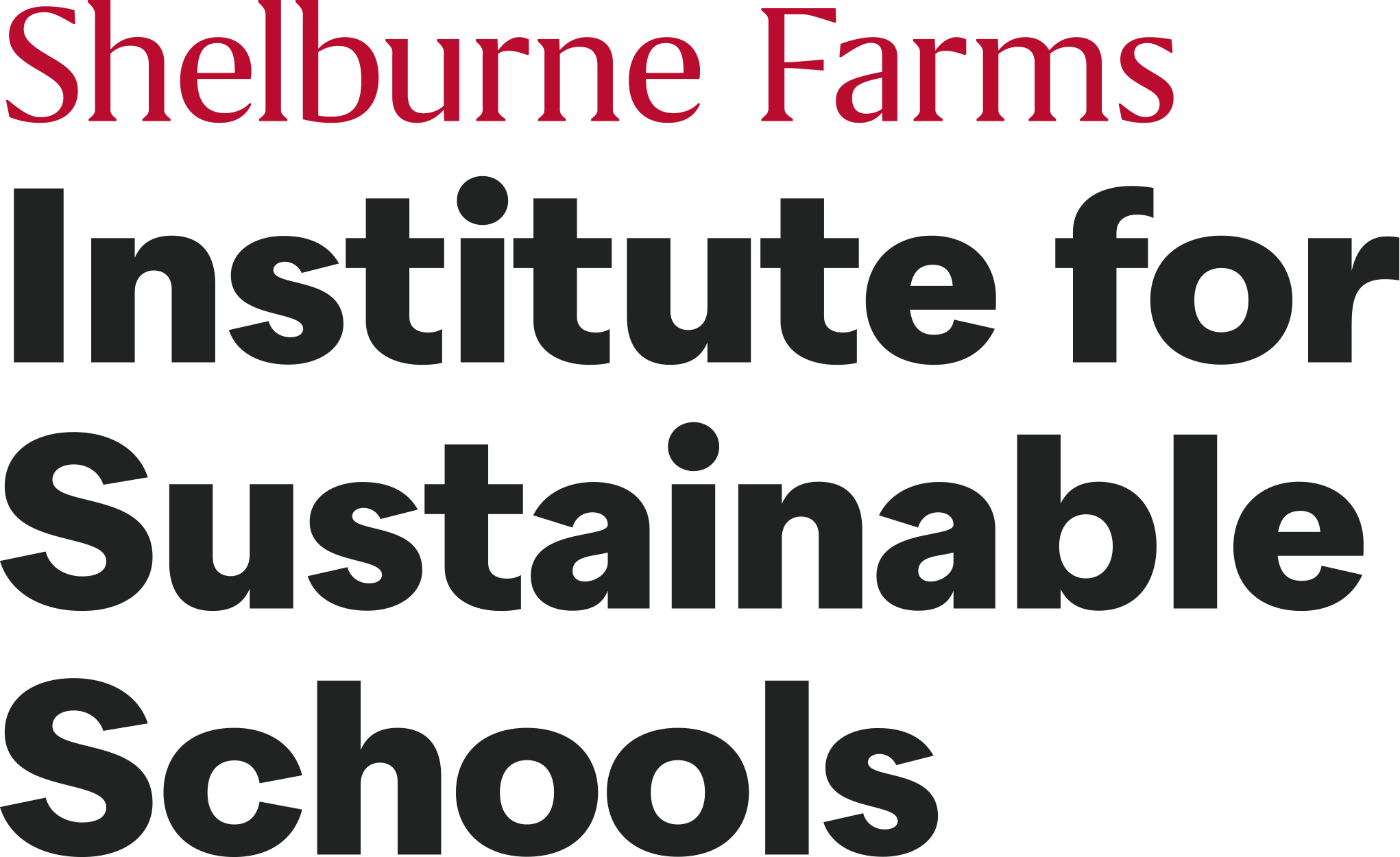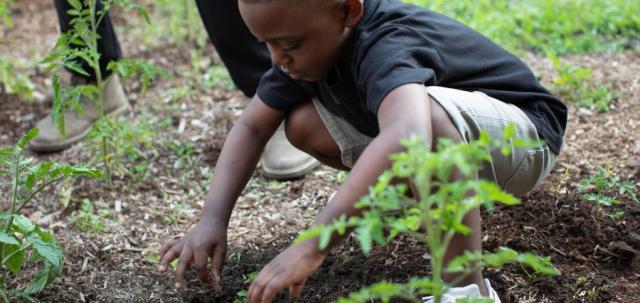Farm to school programs build relationships between schools and local farms and bring locally grown foods to cafeterias and classrooms. Through hands-on learning, students can connect the dots of where their food comes from and the impacts of their choices on their bodies, the environment, and the local food system and farming community.
Connecting kids to how food is grown and raised has always been part of the Shelburne Farms story. Understanding how we’re all connected to the earth is fundamental to educating for sustainability.

Vermont FEED
Since 2000, Vermont FEED, our partnership project with NOFA-VT, has been instrumental in advancing farm to school in the region, most notably through the Northeast Farm to School Institute. We provide network and advocacy leadership, educational resources, and professional development to an evolving farm to school movement, involving hundreds of school communities and producers across the country.
Movement Building & Advocacy
Vermont FEED and Shelburne Farms Institute for Sustainable Schools are key partners in a growing number of farm to school and early childhood groups advancing food systems education:
Since 2010, the Farm to School Institute has been bringing teams together to build relationships, skills, and a collaborative action plan for their schools. With the support of a coach, teams spend the school year putting their plans into action and strengthening their capacity to impact classrooms, cafeterias, and communities, with change that lasts.
The Farm to School Institute is a proven professional learning model that creates robust, sustainable farm to school programs that become deeply embedded in a school’s culture. Our Farm to School Institute Adaptation Program is an opportunity for farm to school leaders across the country to adapt the model to their region and grow farm to school in their state.
The Vermont Farm to School & Early Childhood Network is a statewide network of advocates, practitioners, and educators across the state providing leadership, coordination, and advocacy to advance new and existing farm to school efforts in Vermont classrooms, cafeterias, and communities.
Facilitated by Vermont FEED, the Northeast Farm to School Collaborative is a community of farm to school leaders working together to advance the movement through networking, peer learning, collaborative projects and resources, policy, and convenings. Active since 2008, this group of innovators from seven Northeast states and the USDA has been sharing successes, ideas, and resources to effect bigger change, faster.
We’re a longtime state partner of the National Farm to School Network, working to increase access to local food and nutrition education to improve children’s health, strengthen family farms, and cultivate vibrant communities across the country.

Farm-Based Education Network
Established in 2006, the Farm-Based Education Network (FBEN) is a free member network created to strengthen and support the work of farmers, educators, and community leaders who provide access and experiences of all kinds on working farms. FBEN is a project administered by Shelburne Farms and supported by regional groups, advisers, and founding partners.
With farm to school, we see young people engaged, and educators engaged, and that engagement leads to so many other positive benefits, like regular attendance in school, connecting the school to the community, and the community back to the school.








